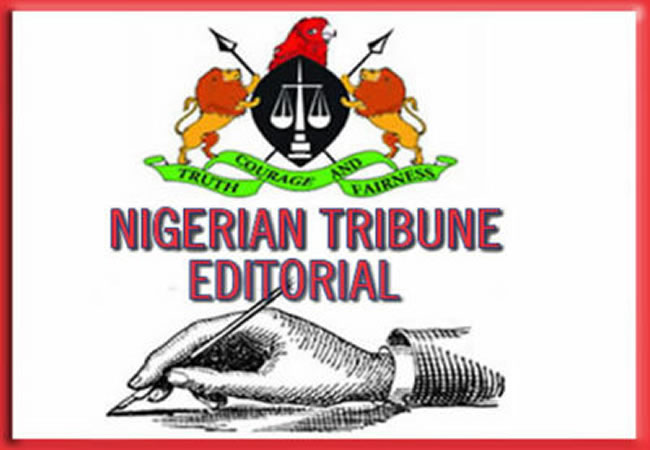A disturbing trend among Deposit Money Banks (DMBs) in Nigeria today is paucity of cash in banking halls and empty Automatic Teller Machines (ATMs). Customers are finding it increasingly difficult to withdraw money from their accounts in banking halls even when they do not request to withdraw amounts in excess of the approved threshold for over-the-counter withdrawals. And those who make a recourse to the use of ATMs suffer a similar fate as the cash dispensing machines are usually empty. This ugly trend is already engendering apprehension amongst Nigerians that a full blown reversion to the Central Bank of Nigeria’s (CBN’s) orchestrated cash crunch which literally brought the domestic economy on its knees in the first quarter of 2023 is imminent. Perhaps the only difference between the current scarcity of cash and that of 2023 is that it is still possible, even if at a premium charge, to withdraw cash from agent banks operating Point of Sale (POS) kiosks which have become quite ubiquitous on the streets in the cities and towns. Indeed, it is the case, and sadly so, that bank depositors are resorting to street currency dealers operating under the guise of agent banking to meet their demands for daily cash withdrawals and utilisation needs since the ATMs and banking halls are bereft of banknotes.
The situation is even more worrying as there are indications that the phenomenon of empty ATMs dotting the metropolis is as a result of DMBs trading cash with POS operators, thereby commoditizing the national currency! The consequences are that banknotes are not in the banks but the POS operators have them aplenty, and the bad eggs within the banking system are making a kill, profiting from citizens’ pains. This is criminal collusion that has bred a systemic challenge and the CBN must, as a matter of urgency, up its ante and rein it in. If money is not available in banks, where else should it be available? It is now common to see people spending long hours in queues trying to withdraw their own money, utilising time they would otherwise have deployed for more productive activities. And in such circumstances, scenes of argument and bickering are routine, and one begins to wonder if this is exactly the kind of spectacle the political leadership wants to see, since it is not doing much to stymie the disturbing trend.
It is rather ironic that the same banks that are very quick at making unauthorised and spurious debits of customers’ accounts have now shifted one of their primary responsibilities to these customers to POS operators in a clandestine fashion that smacks of criminality. Some of these banks give a customer no more than N20,000 per day via ATM, causing depositors trauma over their own money. And as if that is not punishing enough, the restricted sum may not even be available to the customers because the ATMs are empty.
The current cash scarcity necessarily provokes a litany of questions. How can ATMs be empty when the country is not officially at war? If indeed the CBN has not rejected the cash requests of any DMBs in the last six months, as has been confirmed by some stakeholders, why is it that banks do not have cash to give to customers? If the total cash in circulation has reached an all-time-high at N3.97 trillion, out of which a comparatively paltry sum of N270 billion is being retained in the banking system, where is the humongous balance remaining? Is the remaining balance of N3.7 trillion outside the banks left to whims of informal and personal vaults? Has the CBN weighed the adverse implications of this huge amount of currency in the hands informal sector operators and put corrective mechanisms in place to arrest the anomaly? Is the current cash scarcity orchestrated to address the disproportionate amount of currency outside the banks? If it is, how effectively has the strategy addressed the challenge?
Does this patently avoidable cash scarcity not boil down to the failure of the CBN as a regulator? Would it be out of place to construe the cash crunch situation in banking halls and ATMs as a pointer to the extreme contempt in which the CBN, and by implication the government, holds the citizenry? Or how could one comprehend the reality of paucity of cash in banking halls and non-functional ATMs when informal operators like POS have cash in abundance to trade and even make illicit profit from bank depositors while the government folds its arms? How is it possible that government and the CBN would make provision for cash bank customers and then watch helplessly as the customers are not able to access the cash, and nothing is being done about it? Why is it difficult to mandate functional ATMs for all banks even after setting a maximum of N50,000 threshold as daily withdrawal limit? When will the government learn to follow its own rules and treat citizens with some levels decency and dignity?
We urge the government to speedily address this paucity of cash at bank halls and ATMs which are usually the first points of call for bank customers to meet their cash withdrawal needs. The CBN should mandate banks to have functional ATMs that can cater to the cash needs of the customers at all times, as is the practice in civilised climes. And more importantly, the political leadership should show more than a passing interest in this matter if it wishes to correct the impression that it holds citizens in contempt. It should begin to give a human face to its policy options which have largely generated bad optics in the society.
ALSO READ: Atiku blames govt’s failure for journalists, others’ kidnapping
